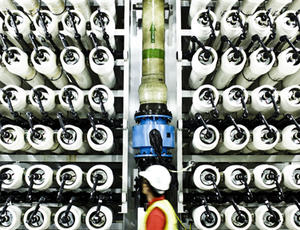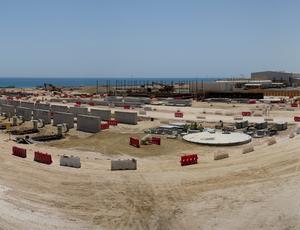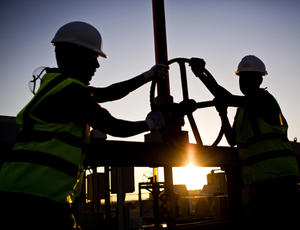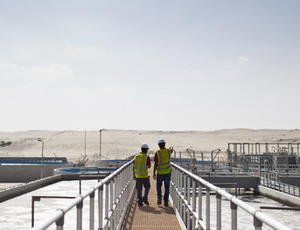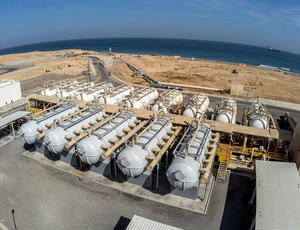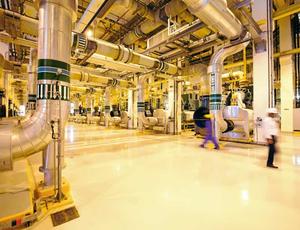Access to water and sanitation
As a global expert in water operations, we manage municipal water and wastewater treatment facilities, as well as networks through PPP (Public-Private Partnerships) contracts (with local or state authorities), such as concession, BOT, DBO, O&M, lease contract, affermage...
We support local authorities by optimizing cost of water, improving the quality of the service, and by co-building innovatives offers for communities.
From treating and recycling water and wastewater, Veolia Middle East aims to protect this precious resource: every drop of water counts! For that, once recycled, the water is reused for irrigation in resorts complexes, agriculture area, golf courses and fountains, or for industrials. Thus, we creates local circular economy loop helping cities and regions to preserve much of its water resources.
2,8 million people
Connected to sanitation
1 million people supplied by potable water
Corporate Brochure
In the arid regions, such as the Middle East, water availability is a crucial issue, making it very hard to satisfy local water needs with traditional resources.
Seawater covers 71% of the earth's surface and represents 97% of the world's water, and almost 60% of the world's population lives less than 60 km from a maritime coast.
This is why deploying seawater desalination procedures can augment available water resources. It also has the advantage of reducing water dependency on other regions and eliminating the need to import and transport water over long distances.
With 12 million cubic meters of water produced per day, Veolia is the global leader in desalination. Through specialized companies, Veolia has built around 15% of the world's desalination capacity.
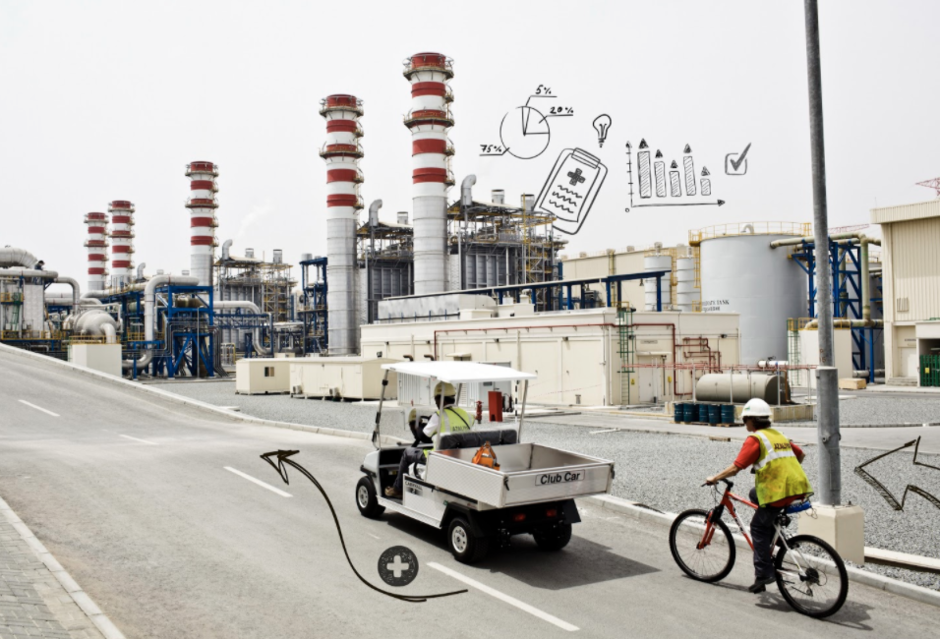
Veolia Middle East supports municipalities and industries throughout the world in the implementation of appropriate desalination strategies. There are two technological possibilities for desalination: distillation (known as thermal desalination) or reverse osmosis (RO) membranes.
These two processes can be combined in what are known as hybrid plants. Veolia is the only player in the world to master this expertise.
The water is first collected at sea, before undergoing several filtration stages prior to the desalination process
Across the Middle East, Veolia has built and operate desalination plants:
- Fujairah in UAE : 333 m3 potable water produced
- Salalah in Oman : 113 650m3/day potable water produced
- Sur in Oman: 131 000m3/day potable water produced
We ensure wastewater treatment for cities and industries
Water companies need to deal with the daily challenges of all aspects of wastewater treatment while protecting the local environment. Each and every day we help water companies deal the most difficult compliance and treatment challenges.
By using advanced technologies and many years of hands-on experience we help you to ensure efficient, compliant and cost-effective quality operations.
Sanitation expert, Veolia offers tailor-made solutions covering every stage of the wastewater treatment process. Smart technologies are now moving into wastewater treatment plants and are helping to increase the value of this activity
To ensure residents’ safety and their quality of life, city wastewater systems must operate optimally.
Veolia has designed a dynamic wastewater network management solution with a twofold objective: to optimize wastewater network management through sustainable climate adaptation measures, and to optimize reservoir and pumping station management through real-time control technologies.
Veolia - world leader in the area of wastewater recycling - has developed new "multi-barrier" treatment systems which guarantee the quality of the water produced is in line with the use intended for it by its clients.
Reuse : wastewater as a new source of water
Social and health risks, falling agricultural yields, impact on industrial productivity, conflicts of use, fires, and desertification all present risks for these countries if they are unable to find the appropriate answers. Reusing wastewater is an obvious solution in these regions.
It is now a major environmental, social, and economic challenge for cities and industry. Reusing wastewater is one of the solutions capable of meeting this challenge.
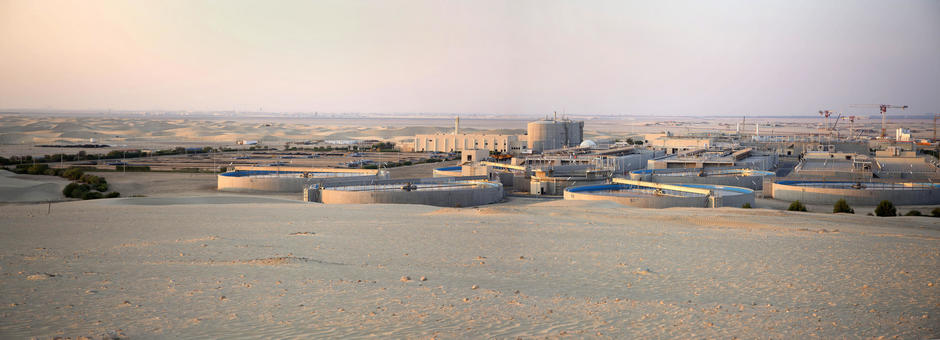
Across the Middle East our wastewater references:
- Ajman, UAE - Collection & wastewater treatment for 600km networks
- Abu Dhabi, UAE - 300,000m3/day wastewater treated
- Al Ain, UAE - 130,000m3/day wastewater treated
- Doha South, Qatar - 204,000m3/day wastewater treated



